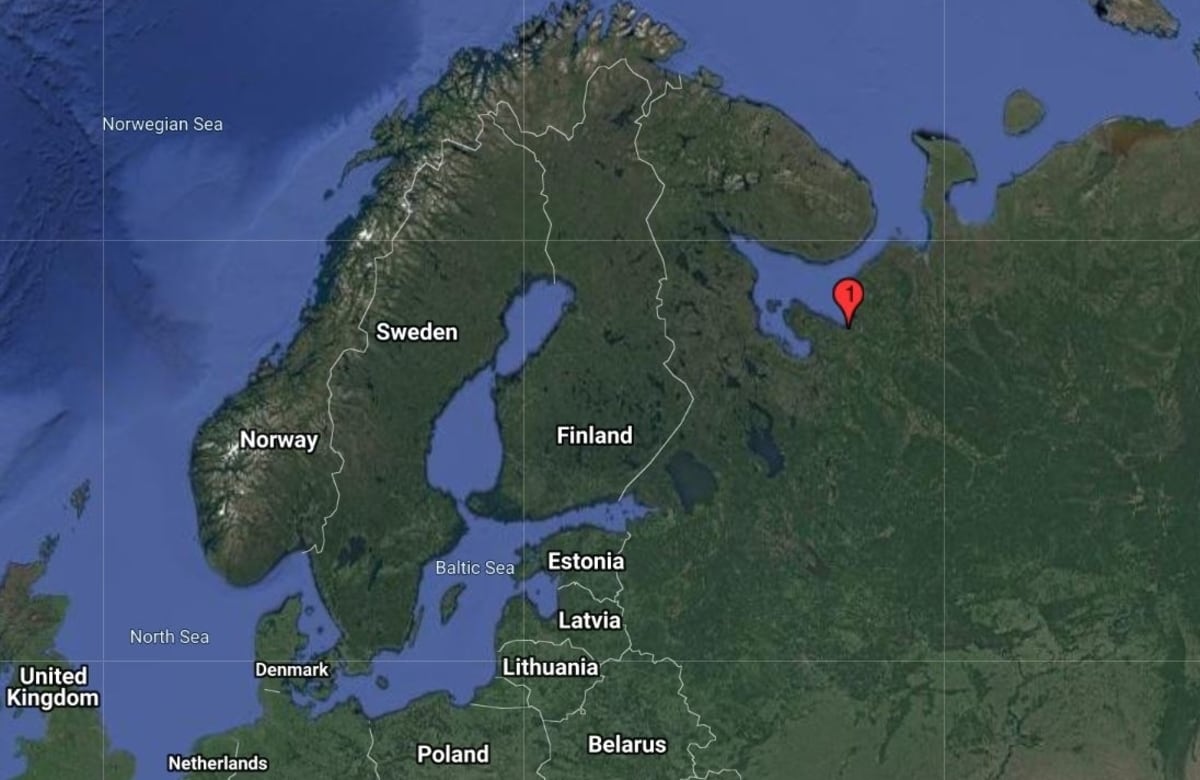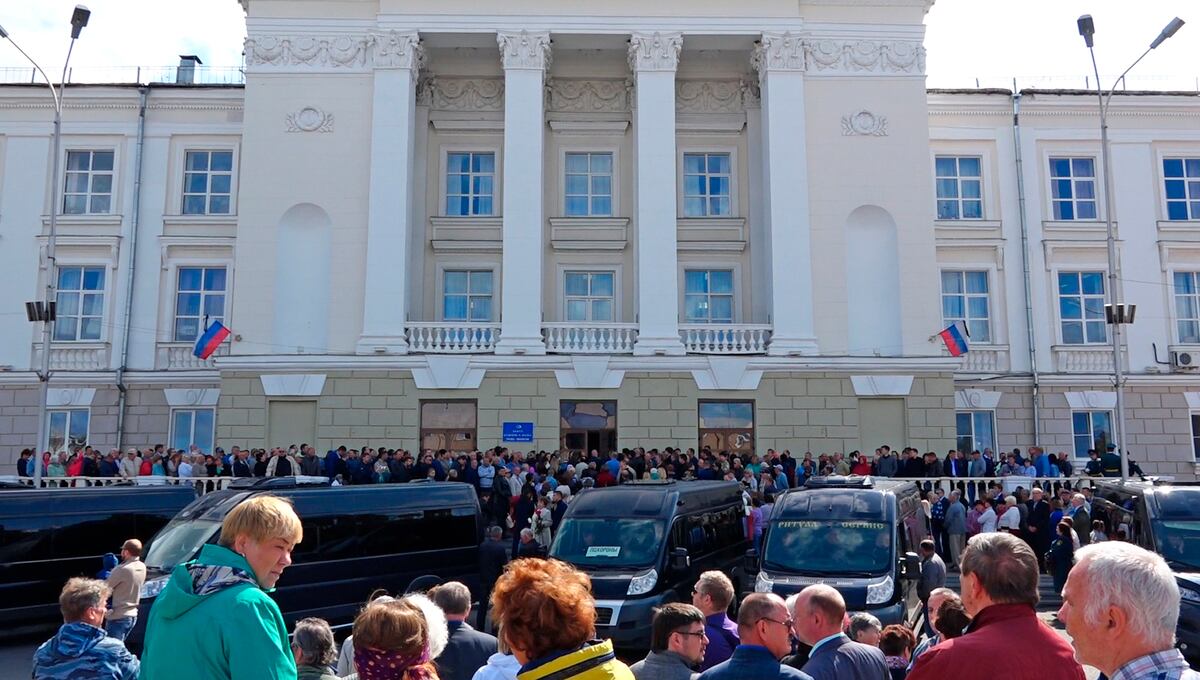MOSCOW — The Russian military on Tuesday told residents of a village near a navy testing range to evacuate, but cancelled the order hours later, adding to the uncertainty and confusion fueled by a missile explosion at the range that led to a brief spike in radiation that frightened residents and raised new questions about the military’s weapons program.
The initial notice from the military told residents of Nyonoksa, a village of about 500, to move out temporarily, citing unspecified activities at the range. But a few hours later, the military said the planned activities were cancelled and rescinded the request to leave, said Ksenia Yudina, a spokeswoman for the Severodvinsk regional administration.
Local media in Severodvinsk said residents of Nyonoksa regularly received similar temporary evacuation orders usually timed to tests at the range.
The Defense Ministry initially said the explosion Thursday of a rocket engine at the navy’s range next to Nyonoksa killed two people and injured six others, but the state-controlled Rosatom nuclear corporation said two days later that the blast also killed five of its nuclear engineers and injured three others.
It’s still not clear what the final toll is.
And just as the Severodvinsk administration reported a brief spike in radiation levels, the Defense Ministry insisted that no radiation had been released — a blunt denial reminiscent of Soviet-era attempts to cover up disasters that added to public nervousness.
RELATED

The Severodvinsk city administration said the radiation level rose to 2 microsieverts per hour for about 30 minutes on Thursday before returning to the area’s natural level of 0.1 microsieverts per hour. Emergency officials issued a warning to all workers to stay indoors and close the windows. Spooked residents rushed to buy iodide, which can help limit the damage from exposure to radiation.
Yudina said that radiation levels in Severodvinsk, a city of 183,000 about 30 kilometers (19 miles) east of Nyonoksa have been normal since Thursday.
Local emergency officials also announced after taking ground samples from around the area that they have found no trace of radioactive contamination.
Neither the Defense Ministry nor Rosatom named the type of rocket that exploded during the test, saying only that it had liquid propellant.
But Rosatom's statement saying that the explosion occurred during tests of a "nuclear isotope power source" led observers to conclude it was the Burevestnik (Petrel), a nuclear-powered cruise missile code-named Skyfall by NATO that was first revealed by Russian President Vladimir Putin in March 2018 along with other doomsday weapons.
President Donald Trump backed that theory Monday, tweeting, “The United States is learning much from the failed missile explosion in Russia. We have similar, though more advanced, technology. The Russian ‘Skyfall’ explosion has people worried about the air around the facility, and far beyond. Not good!”





